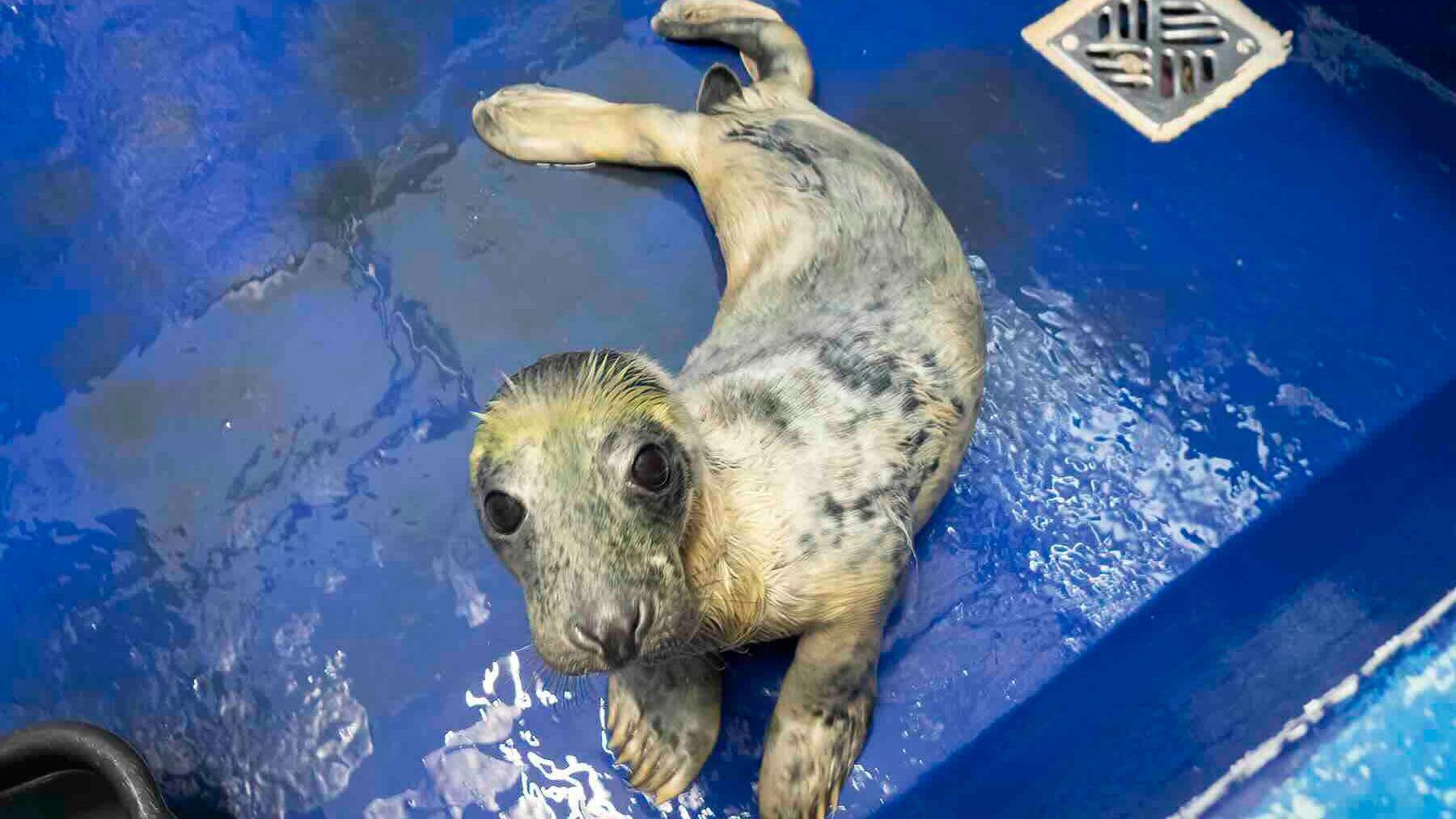Grey seals 'falling victim to climate change'
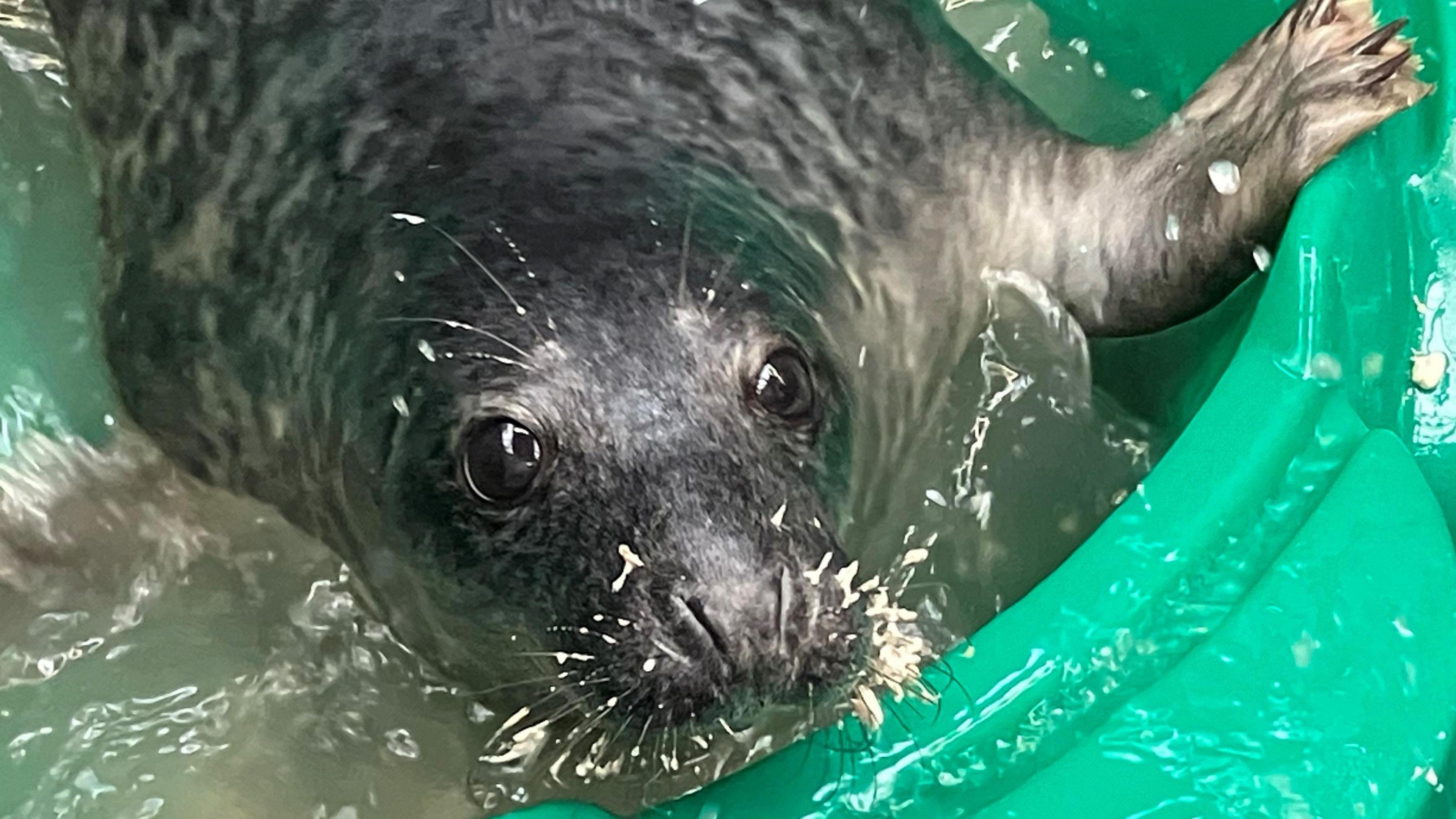
A grey seal named Hercules Beetle is making a good recovery at a hospital in Cornwall
- Published
A marine animal rescue group fears climate change is responsible for a rise in the number of seal pups that need rescuing.
British Divers Marine Life Rescue (BDMLR) has transferred the first seal of the season to its mid Cornwall hospital and expects more to arrive as winter storms separate pups from their mothers.
The grey seal, which has been nicknamed Hercules Beetle, was rescued by the BDMLR for treatment of an eye infection.
Dan Jarvis, welfare and conservation director at the BDMLR, said: "Because of climate change, more severe storms are happening more frequently and it's resulting in more casualties for us."
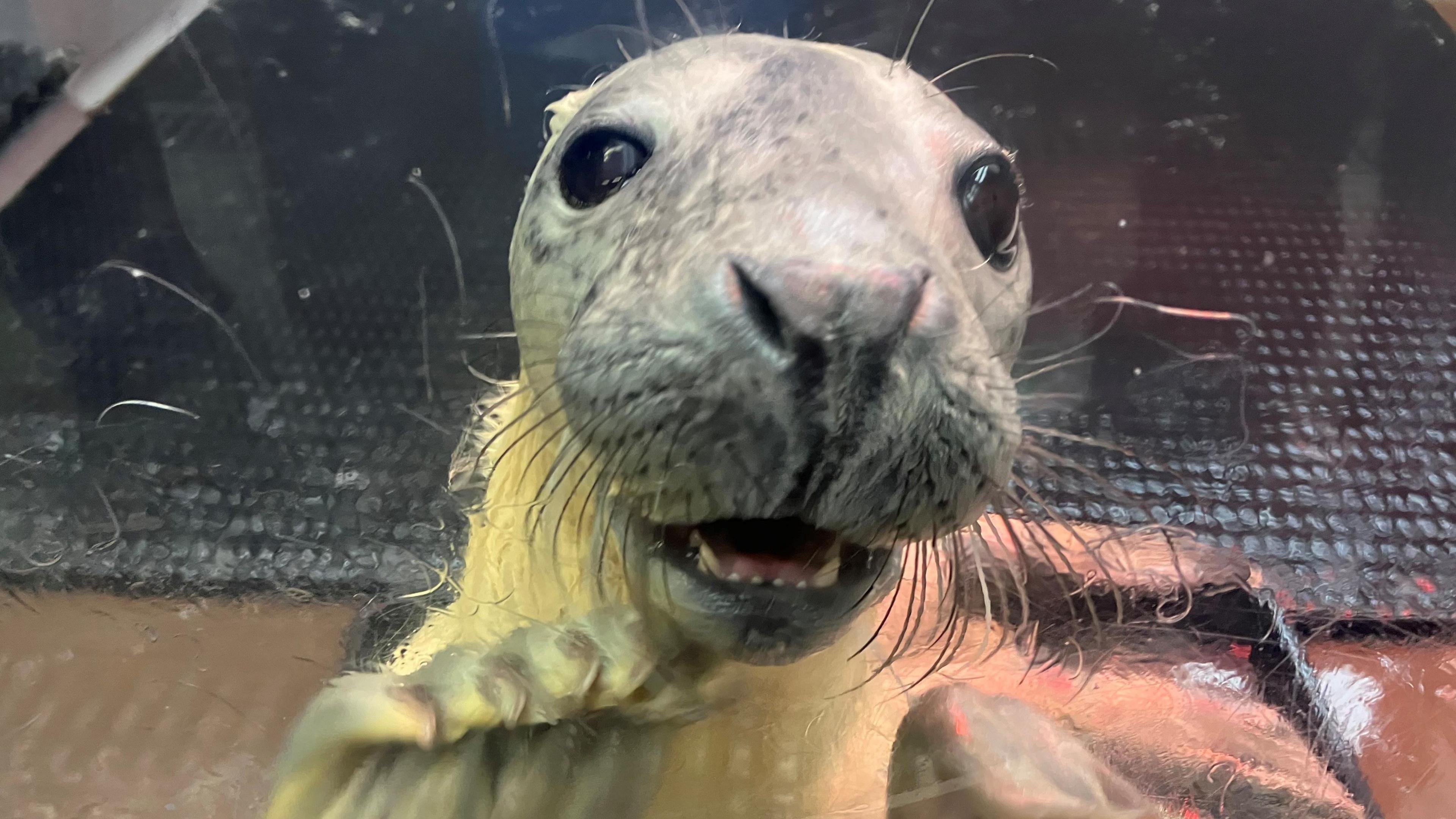
Caterpillar was found on her own with her umbilical cord still attached
The BDMLR hospital has ten spaces where seal pups receive food and veterinary care.
Mr Jarvis said: "Sadly through the winter we have so many casualties, particularly after storms that come in a short space of time, it can overwhelm the available space that we have between the centres in Cornwall.
"In the previous couple of seasons we have completely filled this unit on a regular basis."
Mr Jarvis said it was essential the organisation continued to provide rescue facilities for grey seals as there were "only about 350,000 worldwide" and Cornwall was a stronghold for them.
"Our response needs to be to look after these animals because grey seals are one of the rarest seal species in the world," he said.
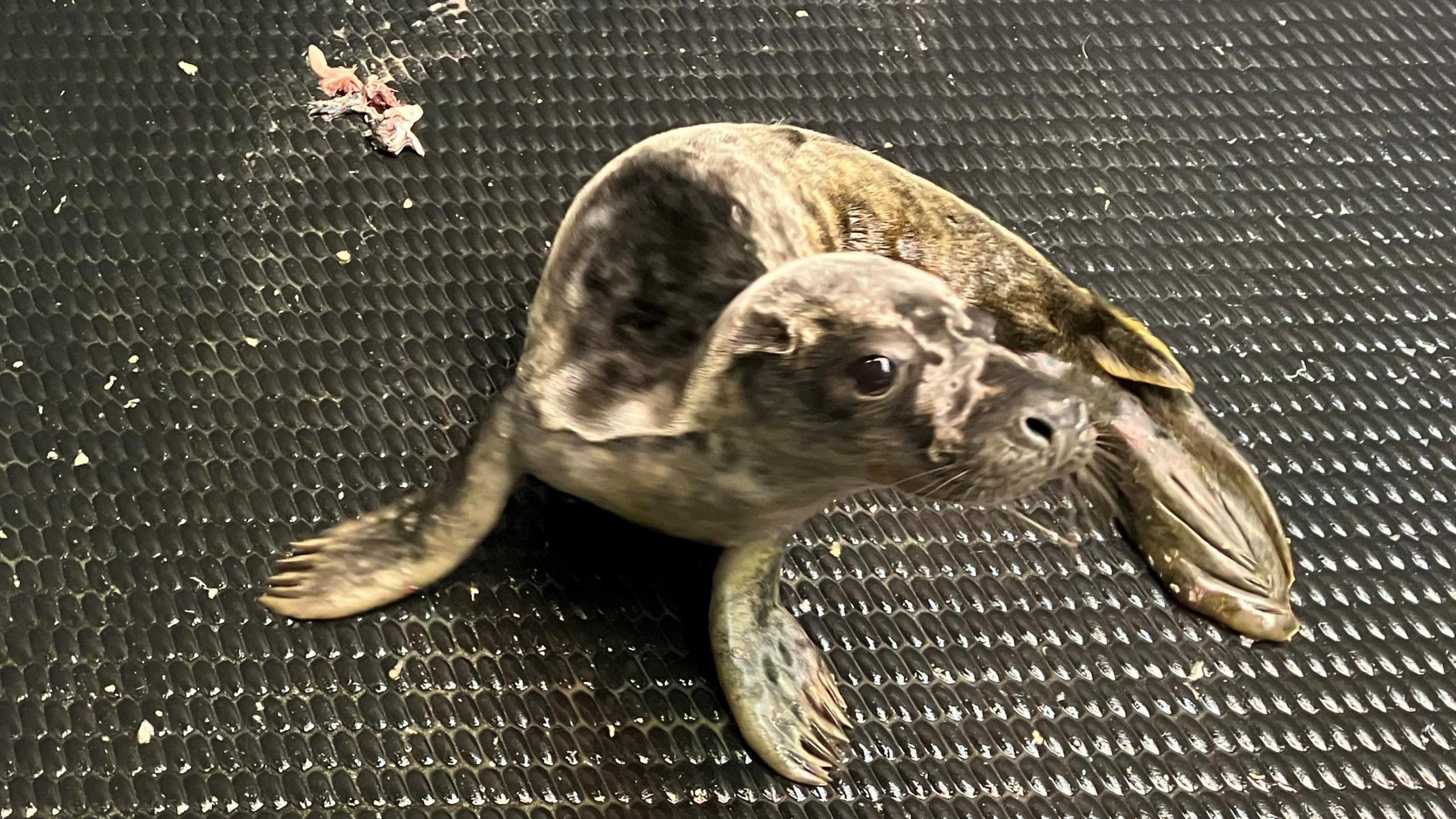
Stick Insect is extremely malnourished and very lethargic
The BDMLR always gives its rescued seals nicknames, previously they have been named after food and celebrities but this year it is insects.
Caterpillar, a young seal which became separated from its mother with the umbilical cord still attached, is also being treated at the unit.
"With very young pups it's quite easy for infections to get into the body and sepsis can be a worry," said Mr Jarvis.
Another extremely malnourished seal has been named Stick Insect.
"He's about five to six weeks old but he's actually now down to birth weight when he should be around 30 kilos," added Mr Jarvis.
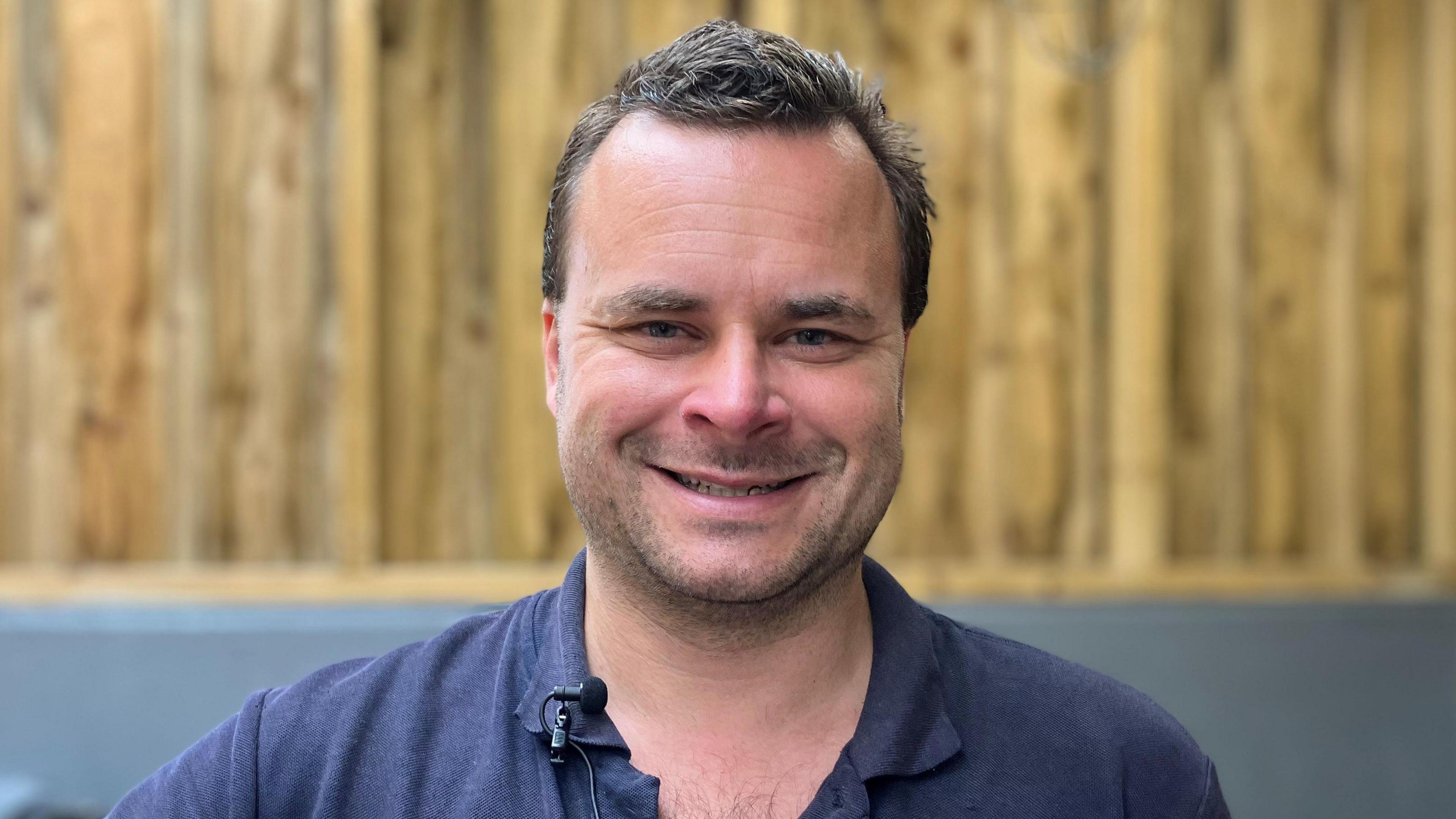
Dan Jarvis says we need to do what we can to support the grey seals around Cornwall
The BDMLR is a separate organisation to the Cornish Seal Sanctuary in Gweek but the centres work together at this time of year.
The sanctuary takes the first pups that need rescuing and rehabilitation but BDMLR acts as an overflow unit.
"We have a full hospital here with vets who can look after the pups for the medium term and then move them on to pools at the other centres," said Mr Jarvis.
Follow BBC Cornwall on X (formerly Twitter), external, Facebook, external and Instagram, external. Send your story ideas to spotlight@bbc.co.uk, external.
- Published10 October 2024
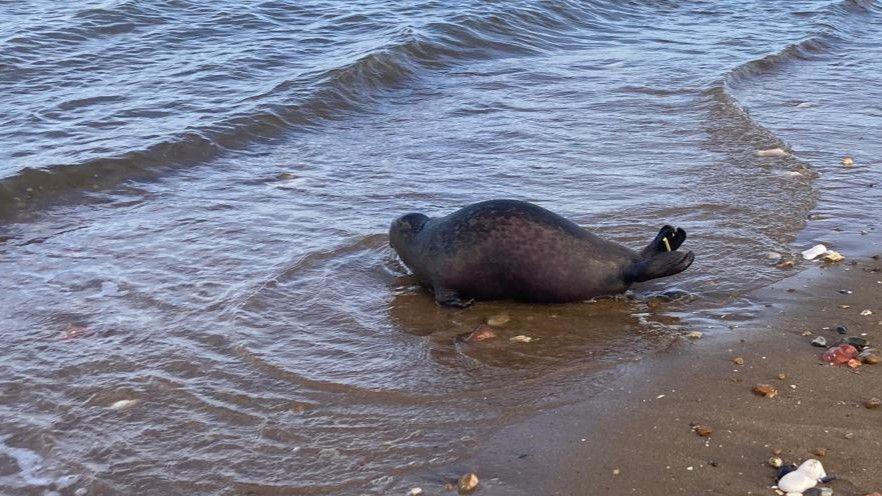
- Published9 October 2024
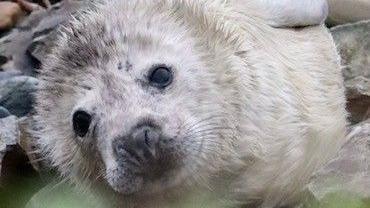
- Published1 September 2024
